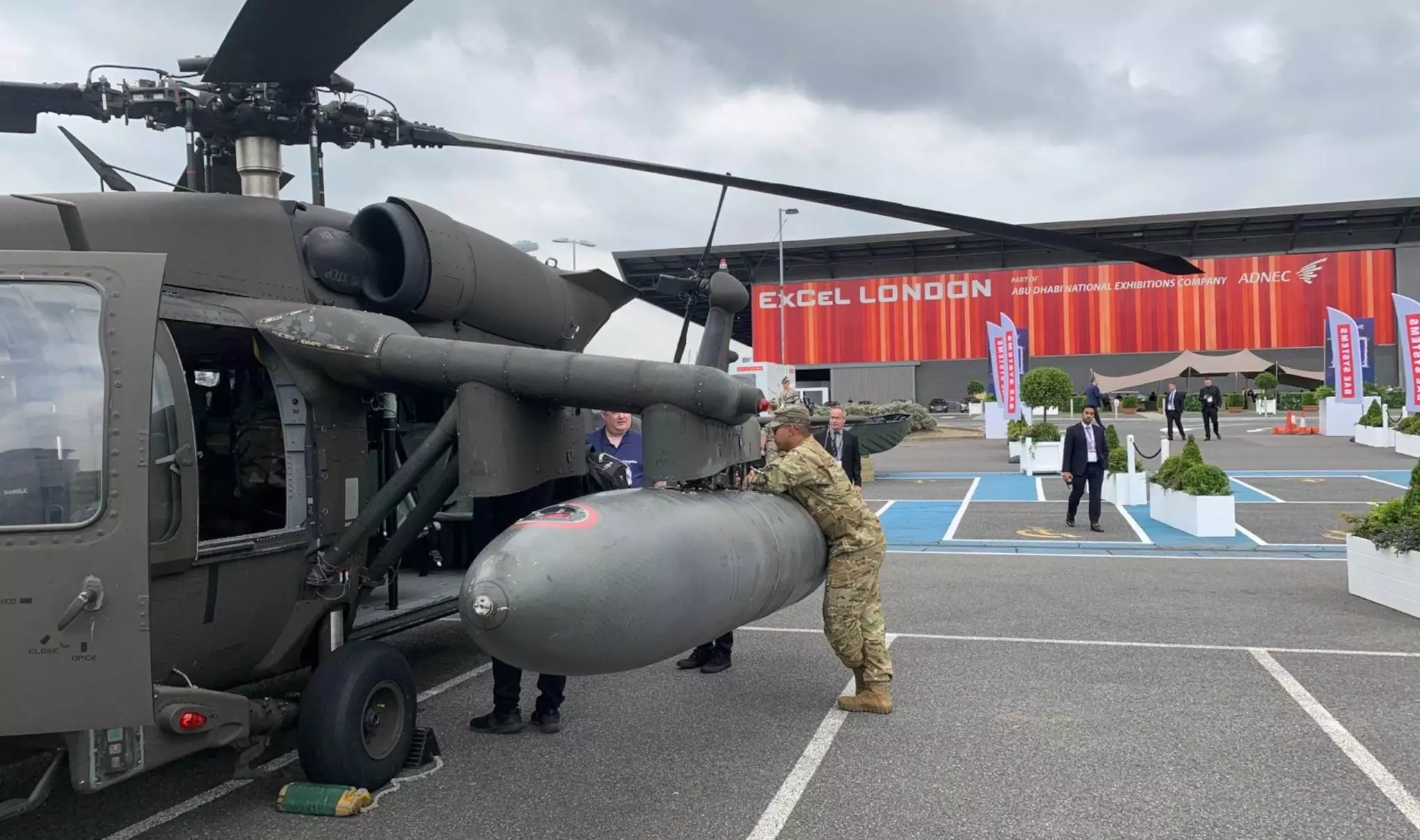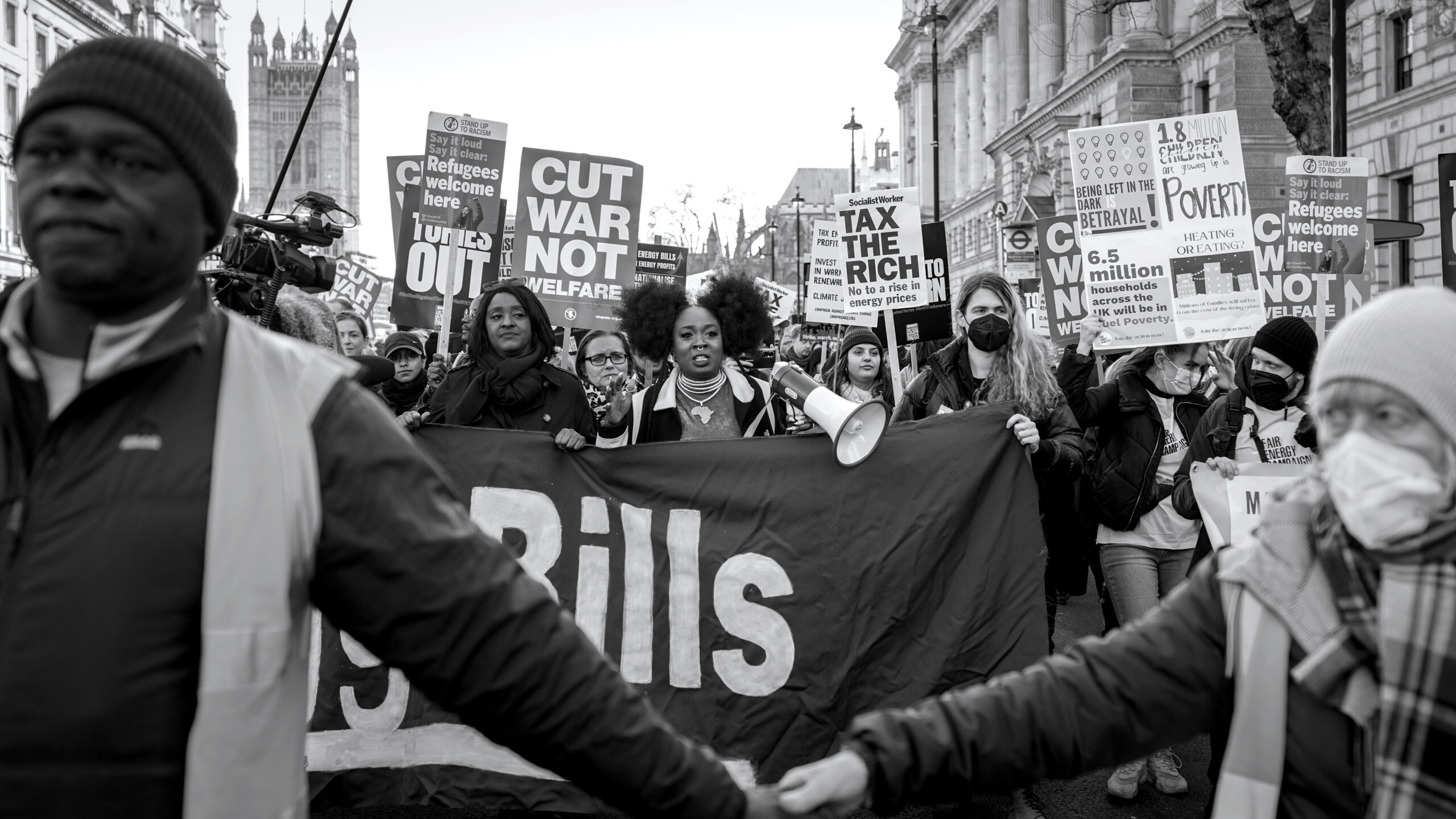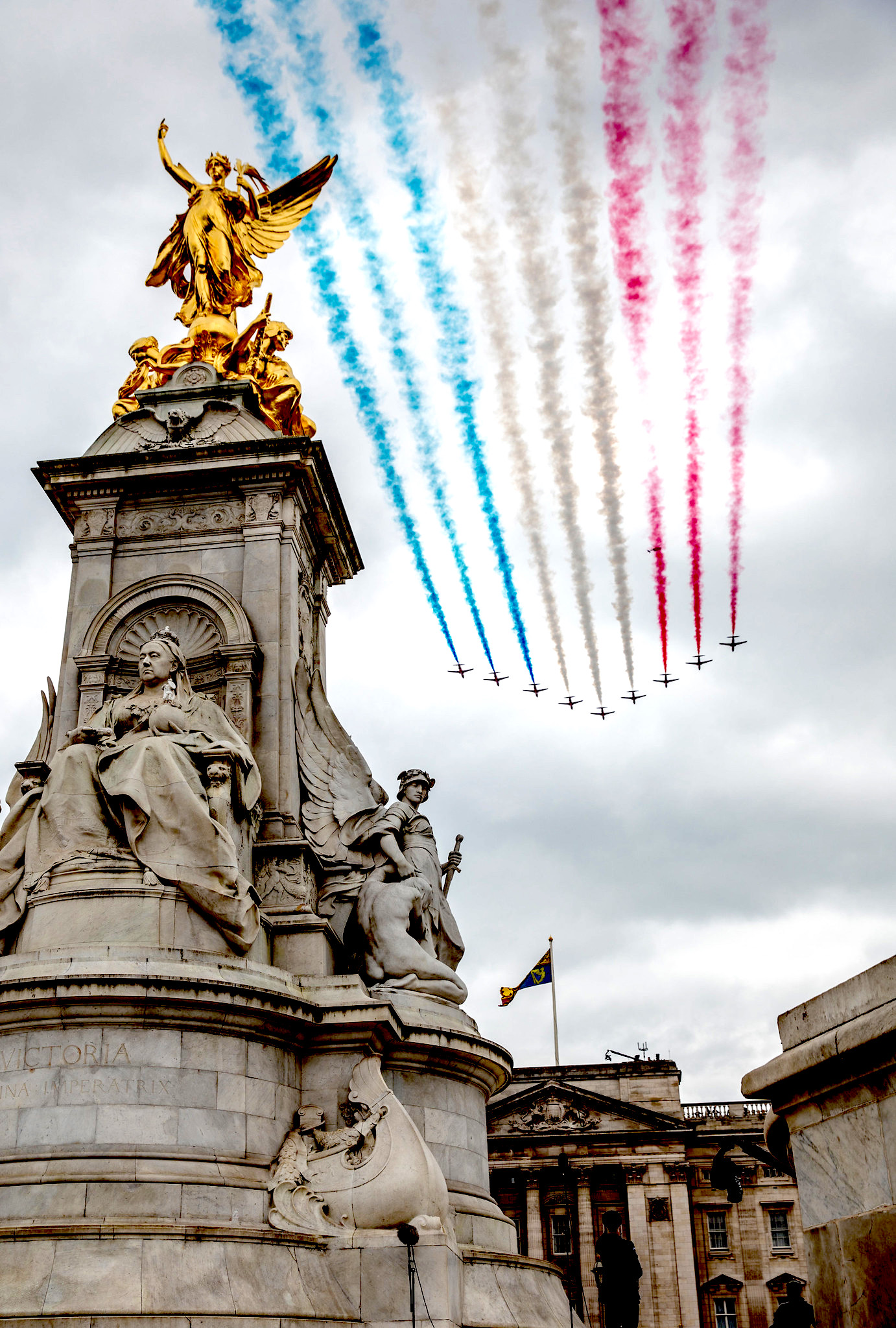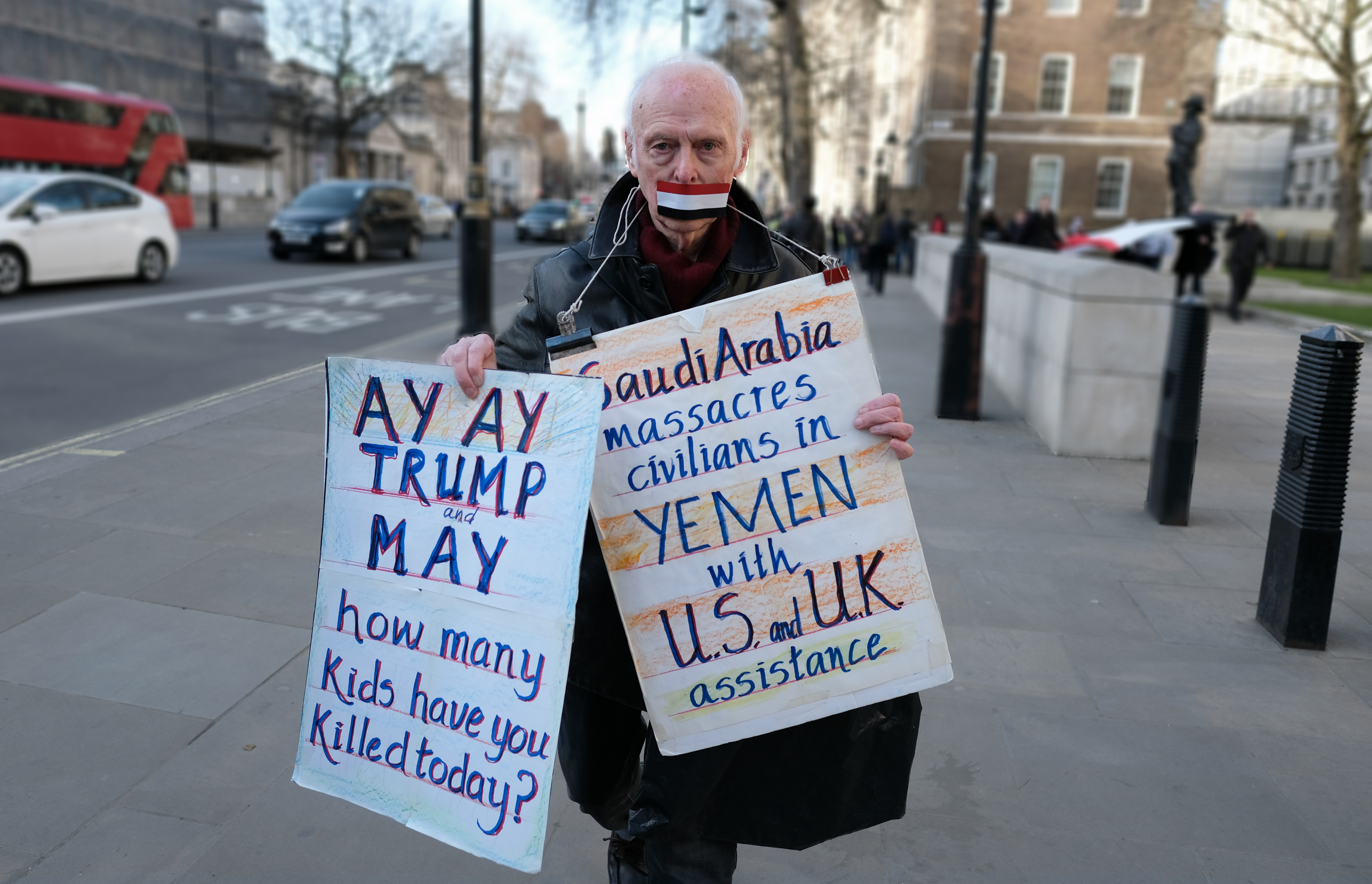While the Defence and Security Equipment International expo is underway this week in London, Anna Stavrianakis looks at the deep, entrenched relationship between the British state and arms companies and the violation of U.K. export controls.

U.S. soldier leans on a Black Hawk helicopter outside DSEI, Sept. 15, 2021. (Matt Kennard / Declassified UK)
By Anna Stavrianakis
Declassified UK
 This week, 35,000 arms company representatives, military officers and state officials from around the world are congregating at the Excel Centre in Newham, East London.
This week, 35,000 arms company representatives, military officers and state officials from around the world are congregating at the Excel Centre in Newham, East London.
Over four days, [Sept. 12-15] guests at Defence and Security Equipment International (DSEI) can watch demonstrations of new weapons systems, listen to keynote speakers euphemise the global appetite for war-making, visit warships moored on the Thames, and make connections with buyers and sellers via a dedicated networking app.
For the more sportingly inclined, there is the tri-force tug of war to show off the brawn and teamwork of the British Army, Royal Air Force and Royal Navy.
DSEI is a significant opportunity for states, their militaries and the arms industry to connect in the global race to (re)arm that is currently underway. Global military spending passed the $2 trillion mark for the first time in 2021; in 2022 it hit $2.2 trillion.
The immediate cause of the jump is the war in Ukraine, as a result of both Russian and Western increases in military spending. But stockpiles are dwindling, and inflation and shortages in supply chains pose a challenge for industry.
Tap on State Budget

Protesters in London join nationwide cost-of-living protests on Feb. 12, 2022. (Alisdare Hickson, Wikimedia Commons, CC BY-SA 4.0)
Defence spending is effectively a tap on the state budget for arms companies. In the U.K., the war in Ukraine has resulted in new orders worth at least £280 million — and potentially up to £400 million — for BAE Systems to produce munitions for the MoD, which will donate them to Ukraine.
BAE’s share price has jumped more than 75 percent since the Russian invasion.
BAE is also setting up shop in Ukraine itself, with a view to ultimately producing weapons there locally. Meanwhile, Russia has said any BAE presence in Ukraine will be an “object of special attention” for its military.
Beyond Ukraine, the arms industry’s interests are directly inserted into the structures of the British state.
There is a government body dedicated to promoting arms exports, called U.K. Defence and Security Exports, that provides support to companies to advertise at arms fairs like DSEI. They offer help with government-to-government relationships, bilateral meetings, VIP programmes and presentations on what the weapons can do.
And while industry profit is one side of the arms trade coin, the other is state geopolitical interest: the deep commitment in the British government and establishment — across both Conservatives and Labour — that Britain should remain a great power and have the military might to be one.

Red Arrows flying over Central London to celebrate the centenary of the RAF, September 2018. (Defence Imagery, Flickr, CC BY-NC-SA 2.0)
This is the context of the deep, entrenched relationship between the British state and arms companies.
Beyond the immediate support for companies to hawk their wares, it is worth remembering that the preparation for war is paid for by taxpayers.
BAE Systems, which is routinely portrayed as contributing to jobs and the economy, paid less than 15 percent of its own research and development costs in 2022: the rest was paid by the state.
The costs of weapons production are socialised — but the profits are privatised.
Donate to CN’s Fall Fund Drive
And the arms industry is increasingly owned by major asset managers and investment funds, whose returns flow to wealthy individuals, pension funds and foundations.
According to new research from Common Wealth, just two investment firms — BlackRock and Capital Group — together control more than a quarter of BAE Systems. BAE may wrap itself in the Union Jack for advertising purposes and boast about the number of jobs it creates in poorer communities in Britain, but it is firmly enmeshed in the circuits of transnational capital.
Arms production is not as good for the national economy as the public is told. It’s also not that good for those on the receiving end. BAE Systems provides engineering and technical support for the weapons used by the Saudi-led coalition in Yemen, in a war where all sides stand credibly accused of war crimes.
There is photographic evidence of U.K.-produced weapons parts found at the site of airstrikes in Yemen that the U.N. Panel of Experts concluded could only have been carried out by the Saudi-led coalition in a likely violation of international law.
Export Controls

Protester marking third anniversary of the U.K.-backed Saudi terror bombing campaign of Yemen, London, March 2018. (Alisdare Hickson, Flickr, Wikimedia Commons, CC BY-SA 2.0)
This direct evidence of the misuse of U.K.-supplied weapons flies in the face of U.K. export controls, which state that the government will not allow arms exports where there is a clear risk they might be used in a serious violation of international humanitarian law.
But it’s more than simply a case of the controls not being worth the paper they are written on. The government — again, whether Conservative or Labour — makes great play of its controls. They use them to justify and legitimise British involvement in the arms trade.
Ask the government pretty much any question you like about its arms exports, and the answer you will always get is that the U.K. has one of the most robust arms export control regimes in the world.
That’s why Campaign Against Arms Trade took the government to court about its arms exports to Saudi Arabia — three times. The first time, the High Court found in the government’s favour, on the grounds that government policy was legally rational. That doesn’t mean it was a good policy, but that it was rational in narrow legal terms.
The second time around, when CAAT appealed, the government was found to have not even tried to conduct a meaningful risk assessment of the past use of weapons and told it had to stop issuing licences to Saudi Arabia.
The government amended some other licences to ensure that companies could carry on transferring weapons under licences that had previously been granted; and conducted a whitewash internal review saying that any violations were isolated incidents and couldn’t be said to constitute a pattern.
So CAAT took them to court again. The decision was released in June – disappointingly, although perhaps not surprisingly, the judges found in favour of the government. Again, the decision was on the narrow grounds of legal rationality.
The strength of U.K. controls, such as they are, is largely down to NGOs in the British arms transfer control community. Yet the government is committed to exporting weapons when it deems it in its interest, regardless of the consequences.
This runs alongside an increasingly racist and violent orientation towards migrants, asylum seekers and refugees — the latter often being the very people who are displaced by the wars facilitated by U.K.- supplied weapons.
This is why activists return to Newham every two years when DSEI does.
Anna Stavrianakis is director of research and strategy at Shadow World Investigations.
This article is from Declassified UK.
The views expressed are solely those of the author and may or may not reflect those of Consortium News.
Donate to CN’s
Fall Fund Drive



“that Britain should remain a great power and have the military might to be one.”. This is a sick joke! Britain is now a 3rd rate power, still trying & failing to punch well above its weight.
These Merchants of Death are spending vast sums of money that, if diverted, could transform the face of this planet in a very short time – lift millions out of poverty and starvation, and solve many of the most immediate problems around the world.
It is a classic good versus evil fight, but tragically for all of us evil is winning. Our future looks bleaker every day.
Demonstrations and exhibitions of obscene killing devices. Nothing more than that.
Another reason I was glad to ditch my Brit passport and become a NZ citizen.
No disrespect intended, but how do you suppose New Zealand will be different from the UK considering the former is still ruled by the same monarch in London as the latter?